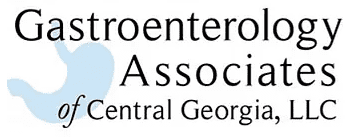Gastroenterology Associates of Central Georgia LLC
Gastroenterologists located in Macon, Gray, Warner Robins, and Milledgeville, GA
If you experience symptoms of a digestive problem, diagnosing your condition is crucial in order to treat it properly. At Gastroenterology Associates of Central Georgia in Macon, Georgia, the board-certified gastroenterologists use endoscopy to look inside your digestive tract and determine what’s causing your symptoms. Schedule a diagnostic endoscopy at Gastroenterology Associates of Central Georgia over the phone.
Endoscopy Q & A
What is endoscopy?
An endoscopy procedure uses an instrument called an endoscope, which is a long tube with a tiny camera attached to it, to view inside your body. Your doctor uses it to examine parts of your digestive tract and diagnose or treat gastrointestinal (GI) conditions. Examples of different types of endoscopy include upper gastrointestinal endoscopy to view your stomach and esophagus and colonoscopy and sigmoidoscopy to view your large intestine and rectum.
Based on your symptoms and risk factors, your doctor lets you know if you’re a good candidate for endoscopy. In some cases, having one and discovering cancer early could save your life.
What is upper endoscopy used for?
Your gastroenterologist might recommend an endoscopy, also called an “upper GI” or esophagogastroduodenoscopy, to view the upper part of your digestive system (which includes your stomach, esophagus, and the first part of your small intestine) to investigate the possibility of a digestive disorder. Symptoms that may warrant an upper endoscopy include:
Persistent nausea or vomiting
Abdominal pain
Difficulty swallowing
Gastrointestinal bleeding
Diarrhea
Heartburn
During an endoscopy, your doctor might collect tissue samples to help make a diagnosis or remove polyps or foreign objects that are stuck there. They can also treat a narrow esophagus by gently making it wider.
What should I expect during an endoscopy?
Your doctor lets you know if you’re a good candidate for endoscopy after reviewing your medical history and symptoms and completing an exam. Prior to the procedure, you must avoid eating or drinking for up to eight hours. You might also have to stop taking certain medications several days beforehand.
Your doctor offers you a sedative to help you relax before your endoscopy. You lie down on your back or side on a table. Your doctor might use an anesthetic to numb your throat. They insert a long, flexible tube through your throat into your esophagus. You may have to swallow to help the scope pass easily.
A small camera attached to the endoscope allows your doctor to view abnormalities in your digestive tract. Your gastroenterologist may use gentle air pressure to inflate the area and use surgical tools to remove polyps or collect tissue samples. The procedure might last 15-30 minutes.
What happens after the procedure?
After an endoscopy, your doctor slowly removes the endoscope. Allow 24 hours for your sedative to fully wear off. You must have somebody drive you home after the procedure and take the day off from work, but you can resume everyday activities as tolerated.
Your doctor discusses the results of your endoscopy and lets you know if you require any treatment or further testing.
Don’t let gastrointestinal symptoms go untreated when they could be a sign of a serious medical problem. Schedule an appointment with Gastroenterology Associates of Central Georgia over the phone.
